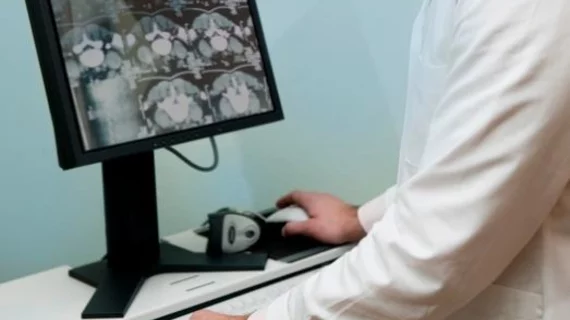Do faster radiologists make more mistakes?
What is the relationship between a radiologist’s interpretation speed and his or her diagnostic accuracy?
The team behind a new analysis in the American Journal of Roentgenology investigated this very issue, noting that no “credible” connections between the two data points have been established. In fact, the authors added, peer-reviewed literature on this subject includes competing answers—some researchers believe speed can lead to improved accuracy, but others say it results in more mistakes.
“Those favoring no relationship (or a positive relationship) between speed and accuracy note that subspecialized training, familiarity with the type of studies being interpreted, and confidence result in reading faster, with better accuracy, and with greater enthusiasm,” wrote authors Lawrence R. Muroff, MD, department of radiology at the University of Florida College of Medicine in Gainesville, and Leonard Berlin, MD, department of radiology at Skokie Hospital in Skokie, Illinois. “In essence, they argue that radiologists tend to interpret more quickly and more accurately when they interpret studies that they are specifically trained to read. Those favoring an inverse relationship between speed and accuracy state that pressures to increase productivity can result in insufficient attention to detail, missed findings, and misinterpretation of the findings that are seen.”
Muroff and Berlin also noted that, on a personal level, many radiologists who work slower say it is because they are being more careful. This is a perfectly valid and normal thing for a specialist to say, but it suggests that faster radiologists are less careful—again, the two sides of the argument come into conflict with one another.
The authors also found that many peer-reviewed articles on this topic are “based on small numbers of radiologists interpreting a limited number of imaging studies.”
“This type of study design may be appropriate when the article is identified as a pilot, but it can be problematic for a variety of reasons when generalizations are made from such studies and implied to be applicable to all radiology practices,” they wrote.
Another issue making it hard to learn from previous studies is that it can be quite difficult to take every other detail—the workday length, distractions, fatigue, and so on—into consideration.
“Recognizing this combination of factors when assessing the diagnostic accuracy of radiologists is important,” the authors wrote. “Unfortunately, except for anecdotal studies, there are no benchmarks for radiologists to follow.”
Overall, Muroff and Berlin observed, the most that can be said about the relationship between a radiologist’s speed and their accuracy is that there is no connection between the two. Numerous studies have addressed this issue over the years, but most evidence is anecdotal and insufficient for making any precise proclamations.
“A variety of factors influence diagnostic accuracy, and the speed of interpretation is not one of them,” the authors concluded. “Some radiologists interpret studies slowly; others interpret more quickly. In both groups, there will be radiologists who are typically more accurate than their colleagues and those who are typically less accurate than their colleagues.”

